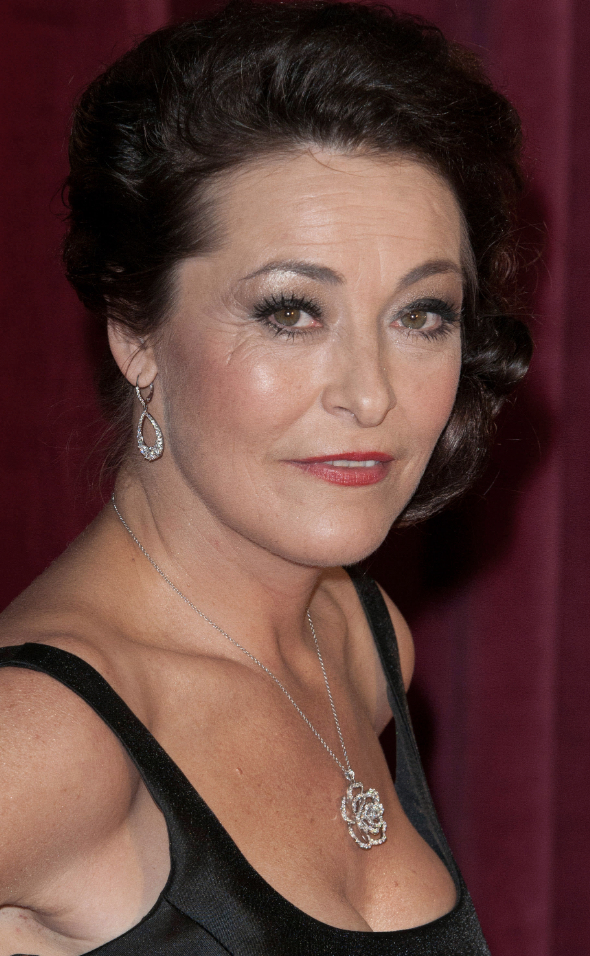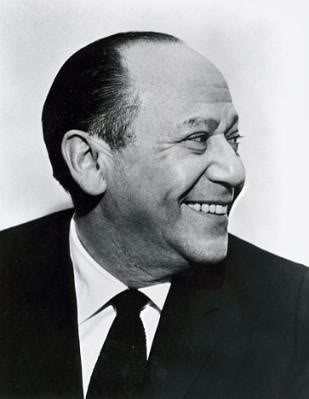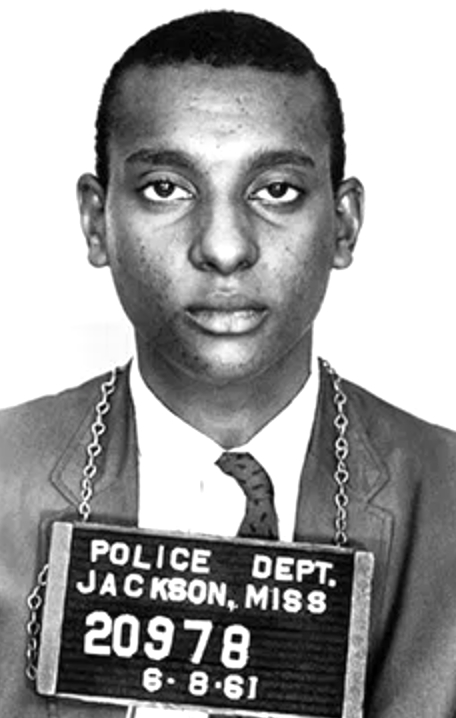June 29
Amanda Donohoe

On this date in 1962, Amanda Donohoe was born in London. She attended the Francis Holland School before leaving home at 16, and she later graduated from Central School of Speech and Drama in 1984. Donohoe began her career in 1981 by starring in music videos. In 1986, she played a major role in the drama Castaway, and has since appeared in numerous films including “Paper Mask” (1990) and “Liar Liar” (1997).
She is known for her role as bisexual lawyer C.J. Lamb on “L.A. Law” from 1990 to 1992, which earned her a Golden Globe Award in 1992 for Best Performance by an Actress in a Supporting Role. She has also appeared in “Frasier,” “Bad Girls,” and in the British soap opera “Emmerdale.” Donohoe was nominated for an Outer Critics Circle Award in 1995 for her performance in Broadway play “Uncle Vanya.”
In 1995, Donohoe played a pagan character in the horror film “Lair of the White Worm,” which involved a scene in which she spit venom onto a crucifix. “I’m an atheist, so it was actually a joy,” Donohoe told Interview magazine. “Spitting on Christ was a great deal of fun.”
PHOTO: Donohoe arriving in Manchester for the 2013 British Soap Awards. Photo via Shutterstock by Featureflash Photo Agency.
“I can’t embrace a male god who has persecuted female sexuality throughout the ages, and that persecution still goes on today all over the world.”
— Donohoe in Interview magazine (celebatheists.com)
Frank Loesser

On this date in 1910, Frank Loesser was born in New York City. Loesser came from a musical family. His father taught classical piano, and his brother, Arthur Loesser, was a concert pianist. Loesser wrote his first song when he was 4 and soon taught himself to play harmonica and piano. He briefly attended the City College of New York but dropped out and turned to various jobs, including newspaper editing. In 1931 he teamed up with William Schuman to write his first lyrics for the song “In Love With a Memory of You.”
Loesser became an accomplished lyricist for such well-known songs as “Moon of Manakoora” (1943), with music by Alfred Newman, “Two Sleepy People” (1938) and “Heart and Soul” (1938), both with music by Hoagy Carmichael. His musical work is just as famous, including such hits as “If I Were a Bell” (1950), “Baby, It’s Cold Outside” (1944), “Luck Be A Lady” (1950) and “On a Slow Boat to China” (1948).
Loesser contributed scores for many celebrated Broadway musicals, including “Guys and Dolls” (1950), “The Most Happy Fella” (1956) and “How to Succeed in Business Without Really Trying” (1961). He also wrote the score for the film “Hans Christian Andersen” (1952), comprised of songs such as “Wonderful Copenhagen” and “Anywhere I Wander.”
He married twice and had three daughters and a son. In daughter Susan Loesser’s book A Most Remarkable Fella: Frank Loesser and the Guys and Dolls in His Life (1993), she wrote that his family was not religious. His grandparents “were Jewish by blood, but not by thought or deed. No religion was practiced at home.” Loesser’s father, Henry Loesser, “cultivated intellectual, not theological, fields.” Before Loesser died, he wrote that he wanted his body to be disposed of “without benefit of ceremony, [or] religion.” (D. 1969)
“What a blessing to know there’s a devil, and that I’m but a pawn in his game / that my impulse to sin doesn’t come from within, and so I’m not exactly to blame.”
— Frank Loesser (ironically) in "What a Blessing" (1960)
Stokely Carmichael

On this date in 1941, Stokely Standiford Churchill Carmichael, aka Kwame Ture, was born in Port of Spain, Trinidad and Tobago, to Mabel “May” and Adolphus Carmichael, respectively a steamship stewardess and a carpenter and cab driver. His parents moved to New York when he was 2 and he was raised by his grandparents before joining his parents in Harlem at age 11. They attended a United Methodist church.
His time at the Bronx High School of Science “led Carmichael to sever his traditional religious notions and pushed him toward secular humanism,” wrote Christopher Cameron in Black Freethinkers: A History of African American Secularism (2019). Impetus came from “the curriculum at Bronx Science, which Carmichael stated was ‘heavily focused on Western rationalism, scientific materialism, and the scientific method, all of which I found logical and thus intellectually satisfying.’ Because of this curriculum, Carmichael claimed, ‘my religious feelings gradually lessened.’ ”
After graduating in 1960, he enrolled at Howard University in Washington, D.C., where he joined a chapter of the Student Nonviolent Coordinating Committee (SNCC) and became active in the civil rights movement. In 1961 he went to Mississippi along with other Freedom Riders, was arrested and served 49 days behind bars in the notorious Parchman Farm prison.
Despite attending Young Communist League meetings, he never joined, according to Cameron: “His own devotion to religion was waning, but he knew that was not the case for most black people in the United States, and he [wrote in Ready for Revolution that he] ‘did not want to be alienated from my people because of Marxist atheism.’ … Carmichael came to believe that if he was going to be a serious civil rights activist, ‘then any talk of atheism and the rejection of God just wasn’t going to cut it.’ ”
He continued his activism, succeeded John Lewis as SNCC chairman in 1966 and gave his first “black power” speech at a March Against Fear rally organized by James Meredith. After stepping down as SNCC chair, he wrote the book Black Power: The Politics of Liberation (1967) with Charles Hamilton. He started distancing himself from the Black Panther Party after serving for a time as its “honorary prime minister.”
In 1968, now calling himself Kwame Ture, he married the South African singer Miriam Makeba and they settled in Conakry, Guinea, in west Africa. Makeba was named Guinea’s delegate to the United Nations. After divorcing in 1973, he married Marlyatou Barry, a Guinean doctor. They had a son, Bokar (b. 1982) before divorcing.
In a long essay in Life magazine in 1967, photojournalist and filmmaker Gordon Parks wrote how Carmichael’s mother once confronted him about the danger of his activism by saying, “I’ve got one son. Let other Negroes give of theirs for a while.” He answered, “What’s all this religious stuff you taught me about Abraham sacrificing his son. If you really believe that, you shouldn’t mind sacrificing your own son.”
In his last years, Carmichael promoted the All-African People’s Revolutionary Party founded by Ghanaian politician Kwame Nkrumah to unify the continent politically. He often returned to speak at Howard University and other U.S. campuses. After a 1996 prostate cancer diagnosis, he was treated in Cuba and at Columbia-Presbyterian Medical Center in New York before returning to Guinea.
He died of cancer at age 57 in Conakry. Julian Bond, NAACP chair, said Carmichael “ought to be remembered for having spent almost every moment of his adult life trying to advance the cause of black liberation.” (D. 1998)
“They were all reading the funnies while I was trying to dig Darwin and Marx.”
— Carmichael, on why he quit a neighborhood gang in high school, recounted by Gordon Parks in Life magazine (May 19, 1967)
